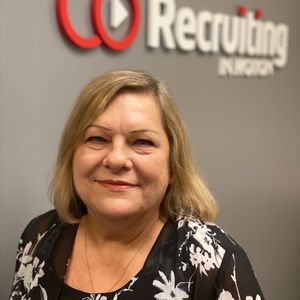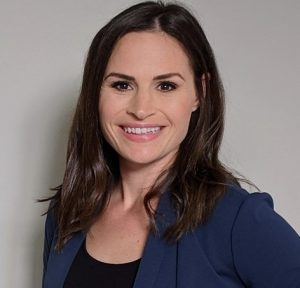Recruiting In Motion Franchise Expansion
The following article was published in The Toronto Star on September 23, 2014. Click here to read the original article
By: Sheldon Gordon Special to the Star, Published on Tue Sep 23 2014
The two-minute video clip begins with an off-camera interviewer asking the job hunter his name and city.
“What types of positions are you looking for and where do you see yourself in five to 10 years?” continues the interviewer. The job hunter explains that he wants to work as an internal auditor for the next two or three years, then move into a financial analyst or senior accountant role. In addition to explaining his technical skills, the applicant presents as confident and articulate.
Even for the well-qualified applicant, the traditional word-processing resume may no longer be enough to win a job interview. Employers increasingly like to view short videos of applicants, like this, to assess their professionalism and presentation skills. They make a quick assessment of the candidate’s ‘fit’ before even reviewing a paper resume.
Recruiting in Motion (RIM) is capitalizing on this hiring trend.
The company name may sound familiar, but it has no ties to Research in Motion, the forerunner of BlackBerry. Instead, this RIM is a specialized recruiting agency that combines in-depth candidate interviews, video-capture technology, and secure web-based profiles.
Founded in 2009 in North York by Managing Partners Sean Kogan and Paul Vendittelli, RIM is a mid-level agency that does permanent and contract specialized placements. It helps fill positions in accounting and finance; sales and marketing; and white-collar back office, including HR and administration.
Rather than grow only organically, RIM has leveraged its proprietary video technology, which it calls its Visual Advantage System, to stand out from competitors, and now has franchise operations in four cities — Vancouver, downtown Toronto, Mississauga, and Ottawa. The operations are growing rapidly and have placed thousands of candidates throughout Canada.
“We’re looking to add anywhere from two to four franchises a year for the next five years,” says Sean Kogan. “We would not expand beyond Canada until we’ve hit at least 10 franchises in Canada. We would consider the U.S. or the U.K. for expansion, but we’re only looking in Canada right now.”
The biggest challenge RIM has currently is attracting the right franchisees. “We’re not a franchise that ever expects to have 500 franchisees,” says Kogan. “We would probably want to max out at 50 in total.”
Even for an experienced recruiter like Kogan, the right individuals are hard to find. “They have to have recruiting industry backgrounds. They have to be ready to take a risk and move out of a stable position. And they have to have the ability to run their own office,” he says.
In short, the right individuals are not the typical franchisees who often buy into a business they don’t know well. “These are not people who have, say, worked for 20 years, maybe are a VP sales, and say, ‘Yeah, I want to start my own business.’ Those could be great franchisees, but not great for us. We have a unique profile we’re looking for.”
Recruiting recruiters with the right profile is a unique challenge. The recruiters don’t have an association or industry body that provides a job search avenue. Major recruiting agencies tend to keep the identities of their top recruiters a closely-guarded secret.
“If I was looking for a general franchisee, I might go to a trade show,” says Kogan. “But we scoped them out, and they weren’t the right profile. We have to dig hard and deep to find the right profile. We’ve been successful in attracting our first four franchisees – mainly by word of mouth – but that remains our biggest challenge.”
Saul Plener, National Leader, Private Company Services, at PricewaterhouseCoopers, offers a three-pronged approach for RIM to overcome its franchisee recruitment challenge.
“First, they need to articulate a very clear vision statement that resonates with potential franchisees, so that they understand why this is a great opportunity for them. That could spark some new ideas on how to find those franchisees.”
Secondly, he urges creative use of trade publications and social media. RIM should advertise in trade magazines that cover the accounting, IT and other professions it works with.
“Not only could RIM advertise their own recruiting service to that market,” says Plener, “but they could also include as part of their ad that franchises are available. Other recruiters who are looking at that magazine because they’ve also placed ads in it may have their interest sparked.”
Plener also proposes using social media such as LinkedIn to target headhunters who may have an interest in becoming RIM franchisees.
Thirdly, he suggests, the franchisor should look internally. RIM could offer their existing franchisees – and their franchisees’ employees – a significant referral fee – up to $20,000 – to help identify potential franchisees. “So it’s not just the two RIM owners who are recruiting franchisees; they leverage the network they already have to help find the right people.”
VITAL STATS
Name: Recruiting in Motion (RIM)
Owners: Sean Kogan and Paul Vendittelli
Contact: https://recruitinginmotion.com, 416-633-9200
Address: 100 Sheppard Avenue East, Suite 860, North York, ON M2N 6N5
Years active: 6
Field: Recruitment
Offering: Permanent and contract placements in accounting and finance; sales and marketing; HR and administration.
Existing franchise locations: Downtown Toronto, Mississauga, Ottawa, Vancouver
EXPERT VIEWS
Interviewed by Rosemary Westwood
Adam Ship
Associate, Vice-Chair, Franchise & Distribution Group, McCarthy Tétrault LLP
The fact that RIM is a professional services franchise means that the traditional places one looks for franchisees aren’t going to be as helpful. The use of social media to identify candidates is an excellent idea. RIM could also check job boards where recruiters are posting openings and leaving their contact information, and target in-house recruiters at corporate companies. I teach a course in franchise law, and there’s this notion of an ideal franchisee psychology. It means that RIM is not only looking for excellent recruiters — it needs people who are entrepreneurial, self-motivated and focused on business development, but who are at the same time governable and can follow the rules, standards and processes for your brand. While top level head-hunters at agencies may be used to freedom and entrepreneurial flexibility, they also may be less accustomed to adapting to prevailing corporate culture compared to in-house corporate recruiters. Even so, once RIM identifies potential candidates, it needs to properly screen them by developing an assessment tool to figure out who would be good at both building a business and following the brand rules. RIM should consider the attributes of its most successful existing franchisees to develop such a tool.
Ken LeBlanc
Chair of the Canadian Franchise Association, President and CEO of PropertyGuys.com
First, I strongly suggest RIM joins the Canadian Franchise Association. It adds an amazing level of credibility for any franchise system and they have a vast collection of resources. Then, I’d focus primarily on hunting for the ideal franchisee (and as recruiters, they know a thing or two about this). Opening a couple of units a year is not a typical growth phase for most startup franchises (most want a much faster growth model). So with this reserved pace, they can afford to do it differently. They don’t have to spend a lot of money on marketing, advertising, or casting a wide net to attract a lot of people. Instead, create a profile of the perfect fit — where do they work, network and socialize? Then target that profile. They also don’t have to stretch their HR model and hire a franchise development team or broker. They should leverage current franchisees to spread the word. Finally, don’t let money get in the way of the right candidate. That’s always a struggle for new franchise systems. For the right candidate, they need to be more flexible in financing. Strong franchise systems are built on long-term profitable partnerships that share a common vision of the future. If you find someone that believes in your your values – don’t let their bank balance get in the way.
Matthew Corrin
Founder and CEO, Freshii
First of all, I think RIM should consider changing its name now. If/when they get scale, they will probably have a trademark infringement on their hands (with Blackberry), which will make things very costly for the brand and the franchisees. Freshii changed our name when we had 12 units, and we paid for everyone’s new signage and branding. It was expensive, but the right thing to do. Second, in the world of franchising, the franchisor is only as good as their references, and RIM’s success is dependent on franchisees being happy. Prospective franchise partners speak to existing franchisees. If they hear great or good things, they probably join. If they hear decent or mediocre feedback, the chance of them joining is very low. Freshii also has never advertised our franchise program, and we get 100 applications a week, which proves that happy customers and good PR build sales, which drives interest. Finally, our success, which could work for RIM, has come from ensuring franchise partners live in the city they are developing, have enough capital to develop their franchise, and are aligned with our mission. The last one is tough to figure out, but I find that if I’d want to have sushi and beer with someone on a Friday night, they are usually also philosophically aligned.




































































































